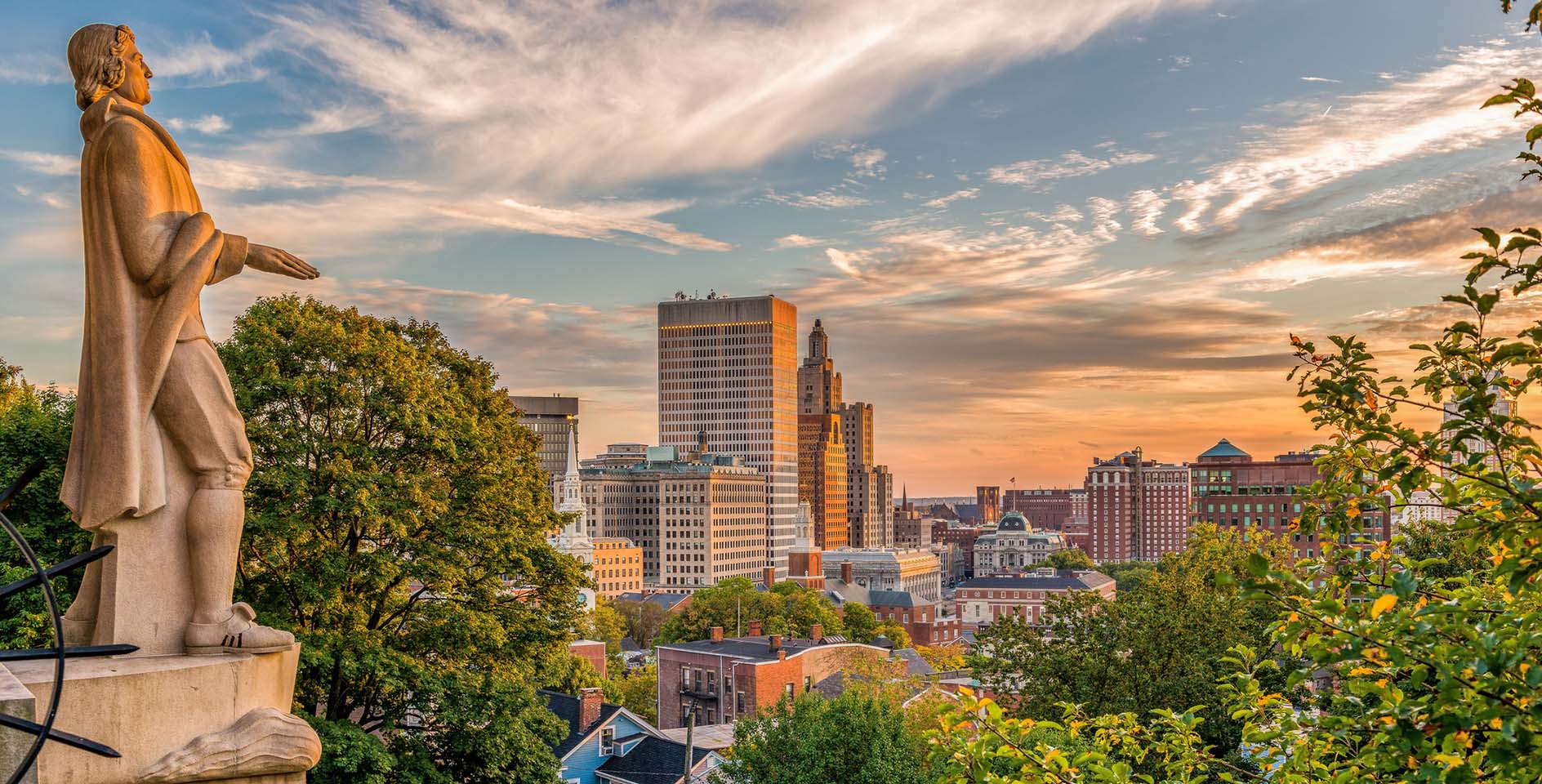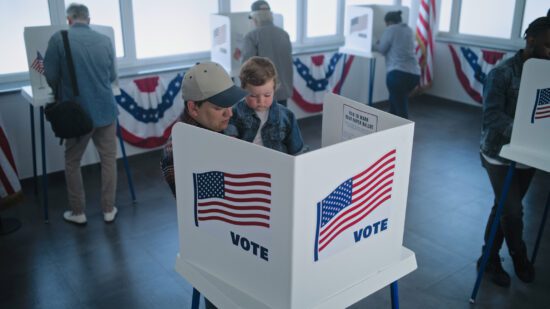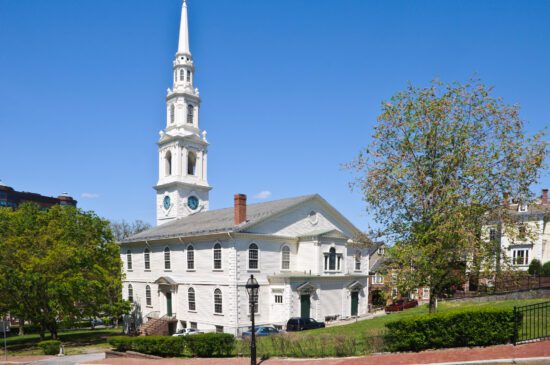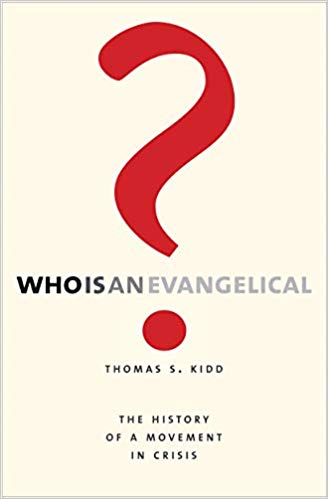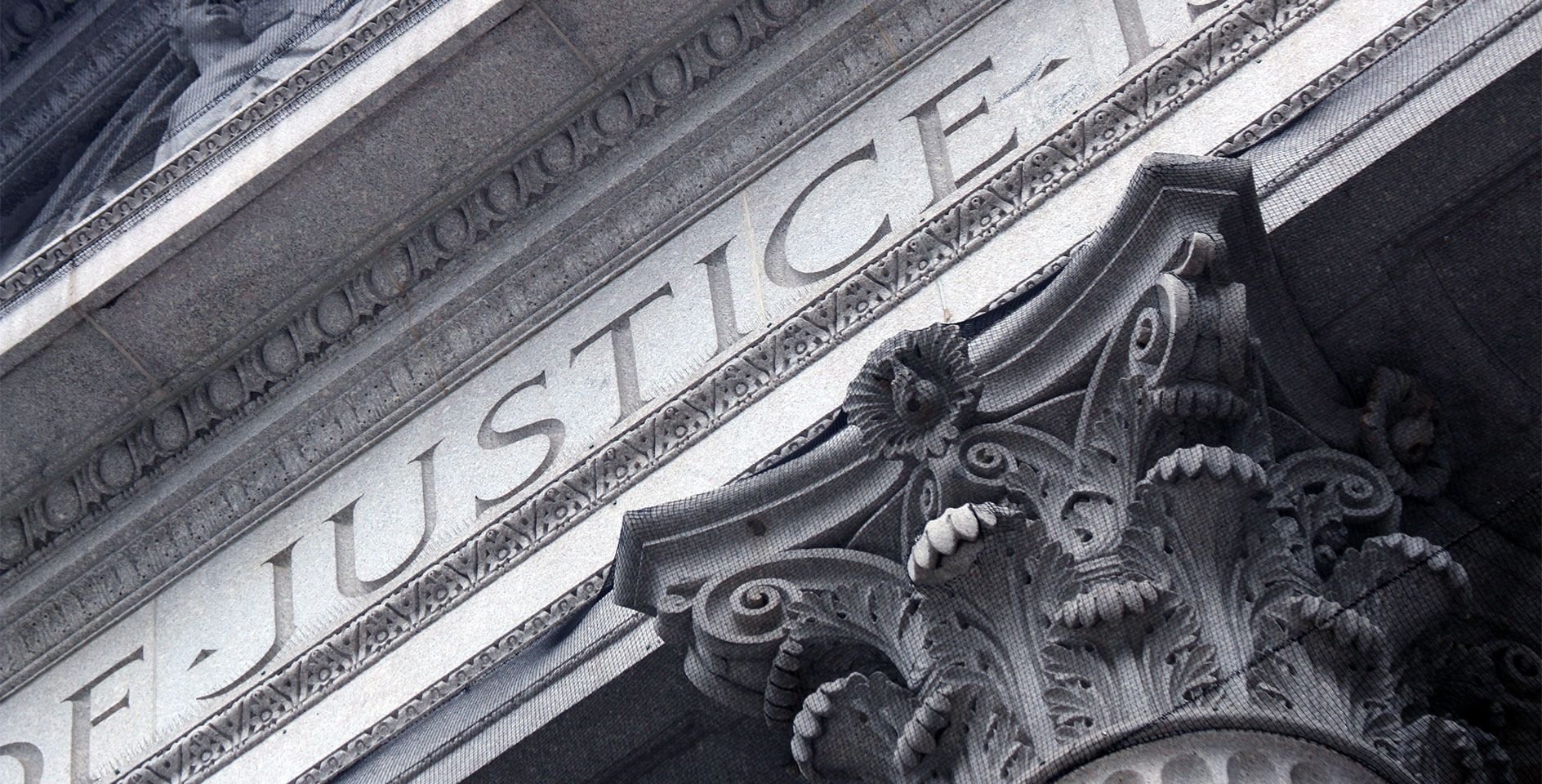The aim of this essay is to offer an overview of the Southern Baptist understanding of religious liberty. Religious liberty advocacy has been a primary concern of the Ethics and Religious Liberty Commission (ERLC) from its inception. This is fitting because religious freedom for all people has always been central to Baptist identity, alongside such distinctives as a regenerate church membership, believer’s baptism, congregational polity, and local church autonomy. Religious liberty has represented the cornerstone of Baptist public witness. Baptists the world over have advocated for liberty of conscience in matters of religion and championed free churches in free states as the ideal context in which religious freedom thrives.
For Southern Baptists, religious freedom is not first and foremost a human right in the modern sense of that term, though we appreciate how it is recognized as such in much of the world today. Nor is religious liberty simply a constitutional right for all Americans, though Southern Baptists are thankful it is the “first freedom” guaranteed in our Bill of Rights. Rather, religious freedom is a foundational principle that promotes authentic human flourishing and helps enable the free advance of the gospel.
Religious liberty in the Baptist Faith & Message 2000
The Baptist Faith & Message 2000 (BF&M) summarizes the doctrinal and ethical consensus of Southern Baptists. The confession includes a robust article on religious liberty.
God alone is Lord of the conscience, and He has left it free from the doctrines and commandments of men which are contrary to His Word or not contained in it. Church and state should be separate. The state owes to every church protection and full freedom in the pursuit of its spiritual ends. In providing for such freedom no ecclesiastical group or denomination should be favored by the state more than others. Civil government being ordained of God, it is the duty of Christians to render loyal obedience thereto in all things not contrary to the revealed will of God. The church should not resort to the civil power to carry on its work. The gospel of Christ contemplates spiritual means alone for the pursuit of its ends. The state has no right to impose penalties for religious opinions of any kind. The state has no right to impose taxes for the support of any form of religion. A free church in a free state is the Christian ideal, and this implies the right of free and unhindered access to God on the part of all men, and the right to form and propagate opinions in the sphere of religion without interference by the civil power.
When the ERLC educates Southern Baptists and others about religious liberty, or when our staff advocates for religious freedom, we look to the BF&M as our confessional standard.
Religious liberty in the scriptures
Religious liberty is not a doctrine taught overtly in the Bible but rather is a principle implied by the teachings of Scripture. The BF&M cites numerous biblical passages to support its confessional summary of religious liberty, which is a good starting place for surveying how Scripture informs Southern Baptist beliefs.
The Bible affirms that each person bears the image of God and is thus endowed by the Creator with inherent dignity (Gen. 1:27; 2:7). Religious liberty is rooted in the imago Dei. Faith is ultimately a matter of the heart rather than merely external actions, and one’s faith matters for eternity (Matt. 6:6–7, 24; 16:26). Thus, one’s faith is a deeply personal (but by no means private) matter. We are to have a clear conscience in matters of faith and practice (1 Pet. 3:11–17), entrusting our souls to God, even when we suffer for our beliefs (1 Pet. 4:12–19). Individual conscience is therefore sacred. True freedom is found in Jesus Christ alone (John 8:36; Rom. 6:1–2; Gal. 5:1, 13). Religious freedom is a correlation of Christian freedom.
Each of us is ultimately accountable to God alone for our beliefs and their implications (Acts 4:19–20; James 4:12). Faith should never be coerced. God has ordained government, which bears the power of the sword and is intended to promote public righteousness (Rom. 13:1–7). By implication, this includes protecting religious liberty. Though believers are subject to earthly authorities and should honor them prayerfully (1 Tim. 2:1–2; 1 Pet. 2:12–17), we are also part of God’s eternal Kingdom (Phil. 3:20). Christians are to offer to each kingdom the rightful allegiance they are due (Matt. 22:21), even as we recognize the Kingdom of Christ is above all earthly kingdoms.
To these references cited in the BF&M, we should add Matthew 12:36–37, Romans 2:5–6; 14:10–12, and 2 Corinthians 5:10. These texts and many others like them teach that every person is accountable to the Lord alone for his or convictions about ultimate matters and will be judged accordingly. Each of us will give a personal account before God for our beliefs and actions. Religion thus cannot be a matter of proxy. No other person can answer on our behalf. We will each stand before God as individual imager-bearers who either believe or do not believe in Jesus as our King and Savior.
Southern Baptists have used many terms to encapsulate these biblical ideas, including liberty of conscience, soul liberty, soul freedom, and soul competency. Whatever term is used, the idea is the same. The individual conscience is of infinite value, it should never be coerced in matters of religion, and soul liberty should be defended by Christians and protected by the government. When all people are the beneficiaries of religious freedom, including unbelievers, then they can seek to flourish without the threat of external coercion in religious matters. Furthermore, in contexts where liberty of conscience is celebrated and defended, Christians experience maximal freedom to persuade non-Christians to embrace true religion.
Early Baptist advocates for religious liberty
The Southern Baptist understanding of religious liberty has deep historical roots. From the earliest days of the Baptist movement, religious liberty has been among our tradition’s chief concerns. In the 17th century, Baptist convictions were forged in the context of persecution at the hands of state churches.
In 1609, Thomas Helwys helped found the first known Baptist church with his friend John Smyth. The church was comprised of former English Separatists who had relocated to Holland to seek religious freedom. In 1612, Helwys returned to England and planted the first Baptist congregation on English soil. That same year, he wrote a treatise titled “A Short Declaration of the Mystery of Iniquity,” dedicated to King James I, which was the first book-length defense of full religious liberty written in the English language. Helwys was imprisoned for his advocacy of religious liberty, ultimately dying for his beliefs.
Roger Williams was one of the earliest champions of religious freedom for all in the New World. Williams fled Massachusetts, where the established church persecuted religious minorities, and founded Rhode Island. The new colony was a haven for religious dissenters. In 1638, Williams also founded the first Baptist church on American soil in Providence. In 1644, Williams authored “The Bloudy Tenent of Persecution,” which argued for religious liberty, even for non-Christian faiths. Williams argued in a letter to the Puritan minister John Cotton for a “hedge or wall of Separation between the Garden of the Church and the Wilderness of the world,” anticipating the “wall of separation” language Thomas Jefferson would use in his famous 1802 letter to the Danbury Baptist Association.
Williams’s friend John Clarke established the second Baptist church in America in Newport, Rhode Island. Like Williams, Clarke was acquainted personally with religious persecution. In 1652, Clarke reported on the persecution of Baptists and other religious dissenters in his treatise “Ill Newes from New England.” In that book, Clark recounted the story of his colleague Obadiah Holmes, who had refused to pay a fine to religious authorities in Massachusetts in 1651 and was subsequently beaten for his Baptist beliefs.
Between 1770 and 1880, Isaac Backus and John Leland emerged as key American Baptist defenders of religious liberty. Backus was a Baptist pastor in Massachusetts. In 1773, he authored a treatise titled “An Appeal to the Public for Religious Liberty, Against the Oppressions of the Present Day.” Unfortunately, his appeal fell upon deaf ears in the colonial legislature. Backus, who died in 1806, would not live to see the state church disestablished in Massachusetts in 1833. Leland, also a native of Massachusetts, was a Baptist evangelist who was active in Virginia during the 1770s and 1780s. In Virginia, he befriended James Madison and Thomas Jefferson, both of whom became political allies for Baptists and others who championed religious liberty. Leland’s most famous work on this topic was a short treatise titled “The Right of Conscience Inalienable” (1791).
While scholars sometimes note different nuances in the thought of Backus and Leland, especially in whether or not the state should endorse Christianity formally or not, the two men shared far more in common than they did differences. Both men thought it desirable that magistrates be believers. Each wanted laws that reflected biblical values as much as possible. Each argued against state churches, rejecting emphatically the validity of religious establishments. Both championed religious liberty for all people, including unbelievers. In these convictions, they were consistent with historic Baptist confessional statements.
Religious liberty in historic Baptist confessions
Baptists have not only written noteworthy tracts and treatises defending religious liberty, but we have also codified the belief in our confessional statements from the early days of our tradition. One can trace several recurring themes from the 1600s through the current BF&M, the latter of which was cited near the start of this essay.
The First London Confession, which was written in 1644 and revised in 1646, is the earliest confessional statement adopted by a group of Baptist churches. The seven churches that affirmed the confession had roots in the English Separatist tradition and were well acquainted with persecution at the hands of the state church. Unlike the Continental Anabaptists, these early Particular Baptists affirmed the good of Christian magistrates. However, the confession also urged godly magistrates to abide the consciences of religious minorities and reject coercion and persecution. The London Baptists desired to have “a clear conscience void of offense towards God,” even if falsely accused of heresy, thereby rendering faithfully that which is due to both God and Caesar (Matt. 22:21).
General Baptists also affirmed religious liberty. The Standard Confession (1660) argued “all men should have the free liberty of their own Consciences in matters of Religion, or Worship, without the least oppression, or persecution, as simply upon that account; and that for any in Authority otherwise to act, we confidently believe is expresslly [sic] contrary to the mind of Christ.” The Orthodox Creed (1679) echoed this sentiment, claiming Christ “would not have the Consciences of Men in Bondage to, or imposed upon, by any Usurpation, Tyranny, or command whatsoever, contrary to his revealed Will in his Word, which is the only Rule he hath left, for the Consciences of all Men to be ruled, and regulated, and guided by, through the assistance of his Spirit.”
The most influential historic Baptist confession is the Second London Confession, which was drafted in 1677. In 1689, Parliament passed the Act of Toleration which granted freedom of worship to most dissenters. But for the Particular Baptists, mere toleration did not go far enough. That same year, they publicly adopted the Second London Confession. Like the earlier confession, Second London affirmed the biblical validity of civil magistrates. It also said, “God alone is Lord of the conscience, and hath left it free from the doctrines and commandments of men which are in any thing contrary to his word, or not contained in it. So that to believe such doctrines, or obey such commands out of conscience, is to betray true liberty of conscience; and the requiring of an implicit faith, an absolute and blind obedience, is to destroy liberty of conscience and reason also.”
The Second London Confession was lightly revised in America in 1742 as the Philadelphia Confession. For a century, the Philadelphia Confession was the most important confessional statement among Baptists in America. By the mid-1800s, the New Hampshire Confession (1833) was becoming the most widely adopted Baptist confession in America. New Hampshire affirmed the divine origin of civil government, the need to pray for magistrates, and the necessity of obeying them “except in things opposed to the will of God, who is the only Lord of the conscience, and the Prince of the kings of the earth.”
The Abstract of Principles (1858), the confessional statement of The Southern Baptist Theological Seminary and the first confession adopted formally by Southern Baptists, echoed Second London in claiming “God alone is Lord of the conscience; and He hath left it free from the doctrines and commandments of men, which are in anything contrary to His word, or not contained in it.” The Abstract further added, “Civil magistrates being ordained of God, subjection in all lawful things commanded by them ought to be yielded by us in the Lord, not only for wrath, but also for conscience sake.”
Contemporary challenges to religious liberty
Religious liberty faces many challenges in the contemporary world. Globally, religious liberty is either rejected by or threatened within a growing number of nations. The 2024 annual report of the U.S. Commission on International Religious Freedom (USCIRF) recommends the United States State Department designate 17 nations as Counties of Particular Concern because they tolerate “particularly severe” violations of religious freedom. USCRIF recommends another 11 nations be placed on the State Department’s Special Watch List because their respective governments engage in or tolerate “severe” violations of religious liberty.
Closer to home, religious liberty is undermined by threats from both ends of the ideological spectrum. Many progressives believe religious liberty provides cover for social conservatives to hold allegedly retrograde or even bigoted views toward LGBTQ+ individuals. This is in part why so many Sexual Orientation and Gender Identity (SOGI) ordinances do not allow for dissent on religious grounds, a posture challenged legally by ERLC and other religious liberty advocacy organizations. Other leftwing critics argue that religious liberty language is really code for an agenda to align Christianity with American identity or even impose Christian social ethics upon all citizens. The end game for many progressive critics of religious liberty is to curtail Christian public witness and thereby promote secularism.
Conservative opponents of religious liberty, including some Baptists, voice two overlapping concerns. Some argue that defending the freedom of those who embrace false religions inadvertently endorses those religions. For example, Southern Baptists should not support the freedom of Muslims to build a mosque in a given community and spread their false beliefs. Other rightwing critics suggest that America is, or at least ought to be, a Christian nation. Therefore, to embrace full religious liberty and especially the separation of church and state is tantamount to endorsing secularism. Conservatives who reject religious liberty often equate liberal democracy with secularism, suggesting the only antidote is a post-liberal (re-)Christianization of the social order.
It is important for contemporary Southern Baptists to remain committed to religious liberty for all in the face of these challenges. Fortunately, in addition to funding the work of the ERLC through Cooperative Program giving, Southern Baptists go on the record regularly in defense of religious freedom. Since the 1980s, the Southern Baptist Convention has adopted over two dozen resolutions that defend religious liberty against the sorts of threats mentioned above. The most recent resolution on this theme was adopted at the 2023 Annual Meeting of the Southern Baptist Convention in New Orleans, Louisiana.
The 2023 resolution was titled “On Christ’s Sole Lordship Over Every Human Conscience.” Southern Baptists affirmed “the unqualified, undiminished, and unshared lordship of Jesus Christ over every human conscience.” Furthermore, messengers reaffirmed the BF&M article on religious liberty. Finally, the resolution tied liberty of conscience to Great Commission advance, affirming Southern Baptists’ “commitment to the total and absolute lordship of Jesus Christ in every area of life and seek to boldly proclaim to every person the good news that Jesus Christ is the only Savior whose Spirit invites the consciences of men and women to be renewed through faith in Him as Lord.”
Conclusion
Southern Baptists remain firm proponents of religious liberty for all. As Baptists, we believe religious liberty is a foundational principle that helps safeguard the freedom of uncoerced belief, unhindered gospel advance, and unrestrained advocacy of religion in the public square. The Ethics and Religious Liberty Commission remains committed to informing and educating Southern Baptists and other Christians about this important principle. The ERLC will also continue to advocate for religious freedom in the public square and around the world, making common cause with like-minded organizations that share our commitment to religious liberty.



